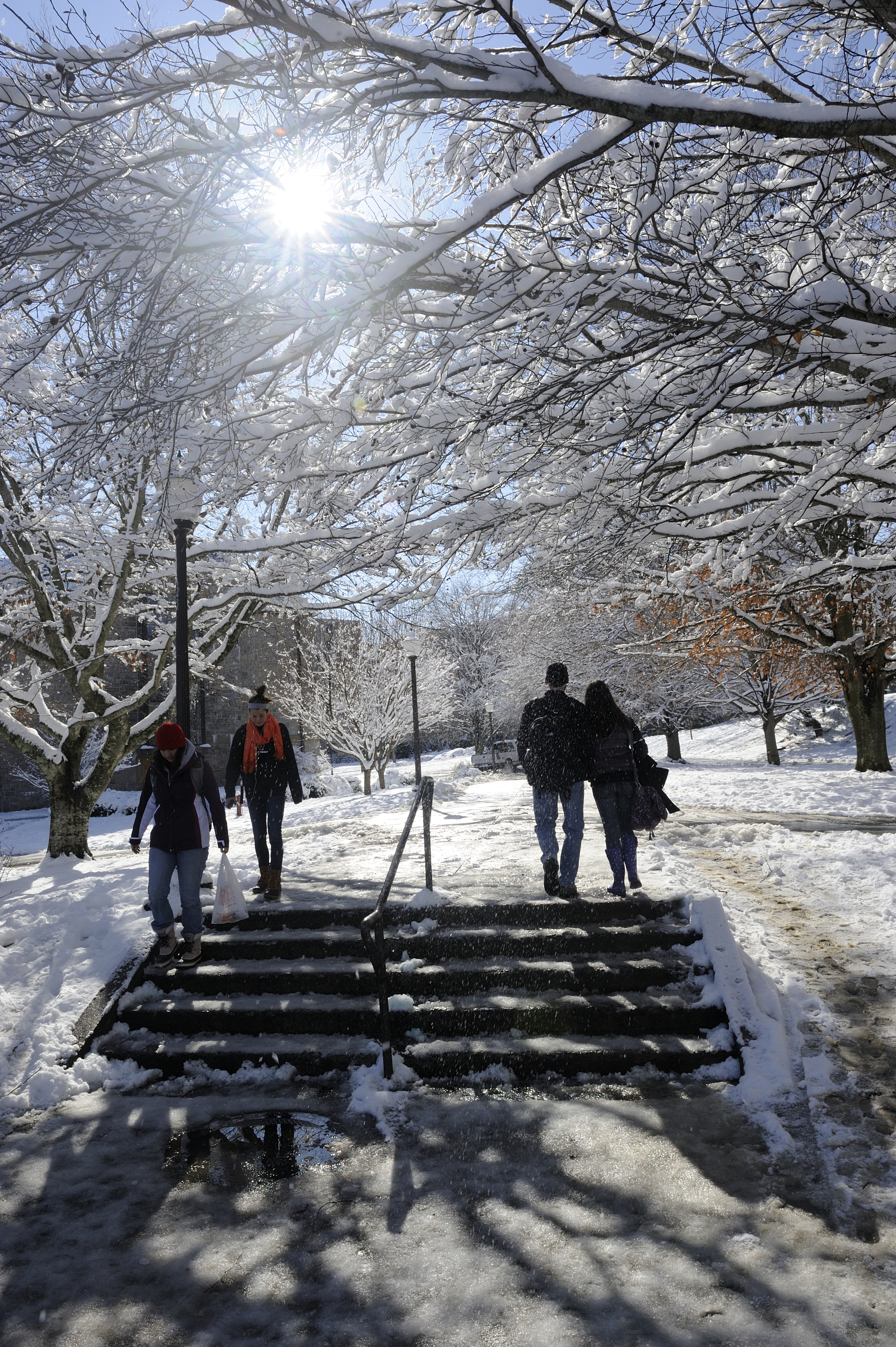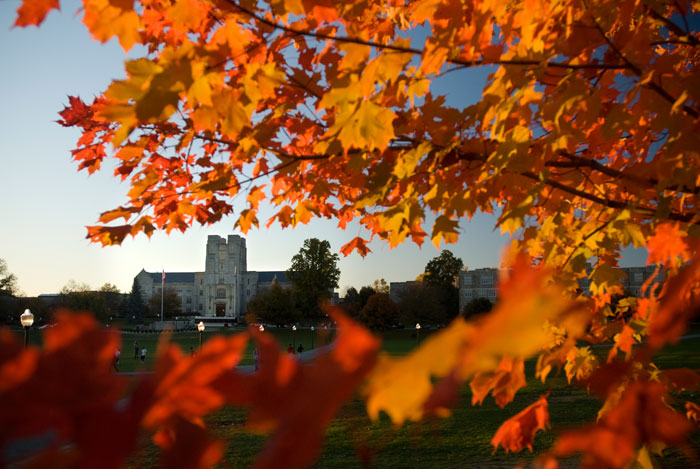Students have more academic opportunities through new programs and services

Students have more academic offerings for the 2013-14 academic year, with the addition of a new academic special sessions, majors, minors, programs, and learning spaces.
Winter Session
- For the first time, during what has traditionally been just winter break, the university will offer a new academic special session, similar to summer sessions, helping students make progress toward their degrees more quickly.
- Virginia Tech currently enrolled students as well as visiting students can choose from a variety of courses to fulfill Curriculum for Liberal Education or major/minor requirements, or to explore another area of interest.
- Courses will be delivered in multiple formats, from entirely online, in residence, a blended format with online and face-to-face interactions, and specialized education abroad opportunities.
- The university will remain closed Dec. 24, 2013 through Jan. 1, 2014. Look for an in-depth article on winter session this fall through Virginia Tech News.
New Undergraduate Degrees
- A new bachelor’s degree program in real estate launches for fall 2013. The innovative degree will transcend traditional college boundaries as a comprehensive, inter-college academic program that will be a partnership among six colleges.
- A new major in environmental informatics, based in the Department of Forest Resources and Conservation in the College of Natural Resources and Environment, begins in fall 2013. The major brings together information technology, data analysis, natural resources, geospatial science, and ecological modeling.
- In the College of Liberal Arts and Human Sciences, students have a new foreign language major – Russian. The language concentration previously was offered only as a minor.
New Graduate Degrees
- The nuclear engineering program in the College of Engineering offers master and doctoral degree programs starting in fall 2013. In 2007, the program was revived with a master’s degree in mechanical engineering with a nuclear certificate. The new degree programs are a reflection of Virginia Tech's dedication to educational programs and research in production and delivery of energy.
New Undergraduate Minors
- A minor in biomedical engineering in the College of Engineering is open for students. About 50 students will be accepted into the program each semester, with a cap of around 250 students at a given time. Students must be sophomore or higher to enter the program.
- The College of Liberal Arts and Human Sciences is unrolling several new minors: diversity and community engagement, peace studies and violence prevention, and communication.
- The management department in the Pamplin College of Business offers a new minor in entrepreneurship in the area of new venture growth.
New Focus Options within Majors
- The building construction major in the College of Architecture and Urban Studies has four new degree options: design; sustainable building performance and energy management; building information technology and management; and real estate as a dual major. All degrees have three semester of common core study before moving into specialized courses for each option.
- Political science majors in the College of Liberal Arts and Human Sciences have a new focus option in national security studies.
- Management majors in the Pamplin College of Business have a new focus option in management consulting and analysis, complementing the two established options in human resource management and entrepreneurship, innovation, and technology management.
Living-learning Community
- Budding entrepreneurs have a new place to collaborate – the “Innovate” living-learning community. At a house at 2475 Oak Lane, 35 students will immerse themselves in the many facets of entrepreneurship. While a faculty director from Pamplin College of Business will lead the community, it is open to students of all majors to apply.
Certificate Program in the National Capital Region
- The School of Public and International Affairs is developing a Living Lab certificate program utilizing Virginia Tech’s partnership with local government and industry in the National Capital Region. Students will be immersed in the operational systems that sustain a thriving metropolis and mentored by Virginia Tech faculty and professionals while employing the nation’s capital as their personal laboratory. The program’s launch is targeted for spring of 2014, with a pilot program in fall 2013. Interested students should contact Anne Khademian or Andrea Morris.
Academic Spaces
- Five laboratories on the first floor of Derring Hall that are used for first year biology labs are renovated. The rooms are refitted with new lab furniture, technology, and other upgrades.
- The library also has some new spaces to explore.
- The College of Science and University Libraries collaborated on a new SCALE-UP classroom in 100 Newman Library. When classes are not in session, students are welcome to use the space, which boasts eight large screen displays and wall-to-wall white boards.
- There is a new room called Port: Digital Research Commons. It’s located on the library side of the Torgersen bridge and can be reserved for classes or groups. Students can try out software tools and get help from experts in GIS and digital humanities.
Dedicated to its motto, Ut Prosim (That I May Serve), Virginia Tech takes a hands-on, engaging approach to education, preparing scholars to be leaders in their fields and communities. As the commonwealth’s most comprehensive university and its leading research institution, Virginia Tech offers 240 undergraduate and graduate degree programs to more than 31,000 students and manages a research portfolio of $513 million. The university fulfills its land-grant mission of transforming knowledge to practice through technological leadership and by fueling economic growth and job creation locally, regionally, and across Virginia.





